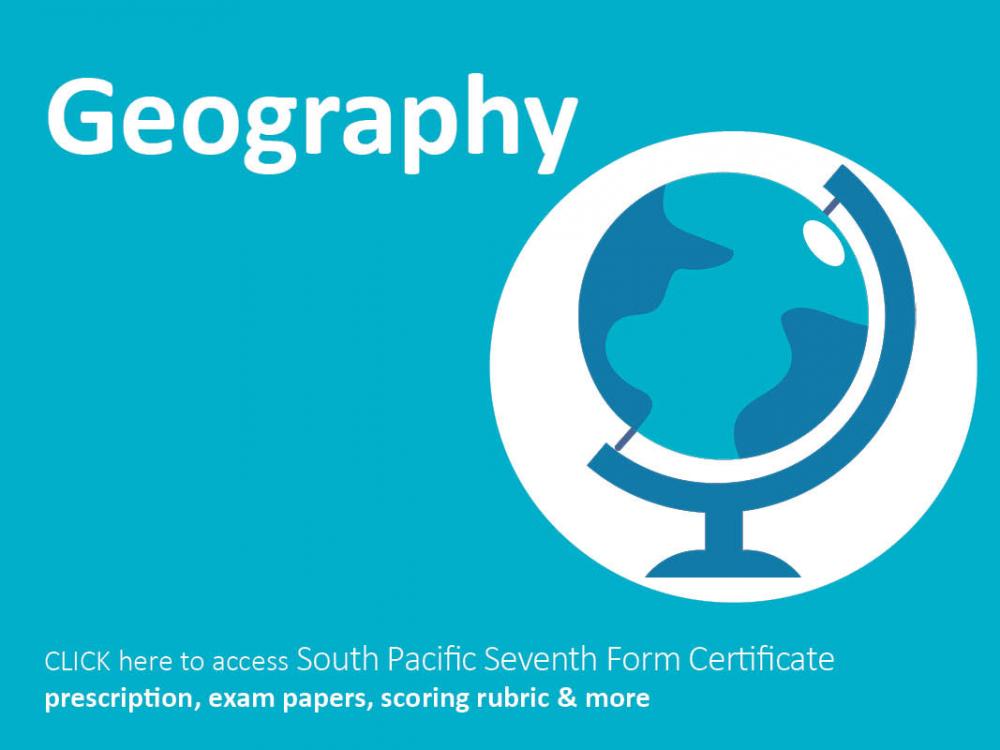
SPFSC SYLLABUS
(1.31 MB)
2022 Geography Scoring Rubric
(934.43 KB)
2021 Geography Scoring Rubric
(652.26 KB)
2020 Geography Scoring Rubric
(1.44 MB)
2019 Geography Scoring Rubric
(1.37 MB)
2018 Geography Scoring Rubric
(865.13 KB)
2017 Geography Scoring Rubric
(533.42 KB)
This Geography course is designed for students who may undertake further studies in Geography, as well as for those who will complete their formal education at the end of Form Seven.
The overall aim of this subject is to develop an understanding of the geographic environment as the home of people. By the end of this course, should be able to:
- demonstrate an understanding of a geographic environment in the Pacific, focusing on interacting natural processes;
- demonstrate an understanding of a cultural process operating within geographic environments at the local, national or global level;
- apply geographic skills, concepts and ideas in both known and unknown contexts in the process of research and interpretation;
- analyse aspects of contemporary geographic issues in the Pacific context;
- analyse aspects of a geographic topic at a global scale; and
- develop skills of independent research in the field with a consultation.